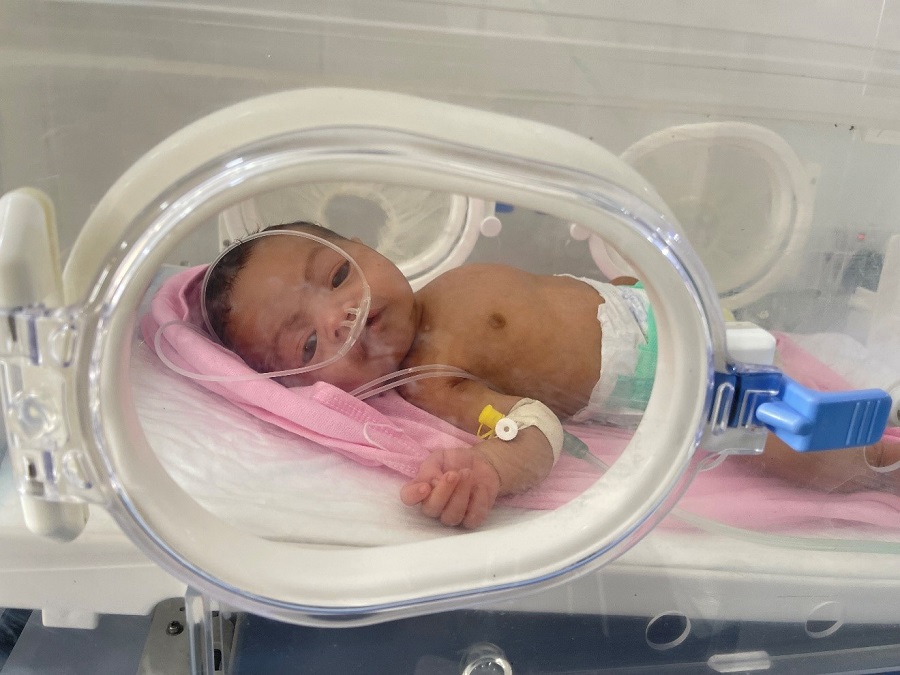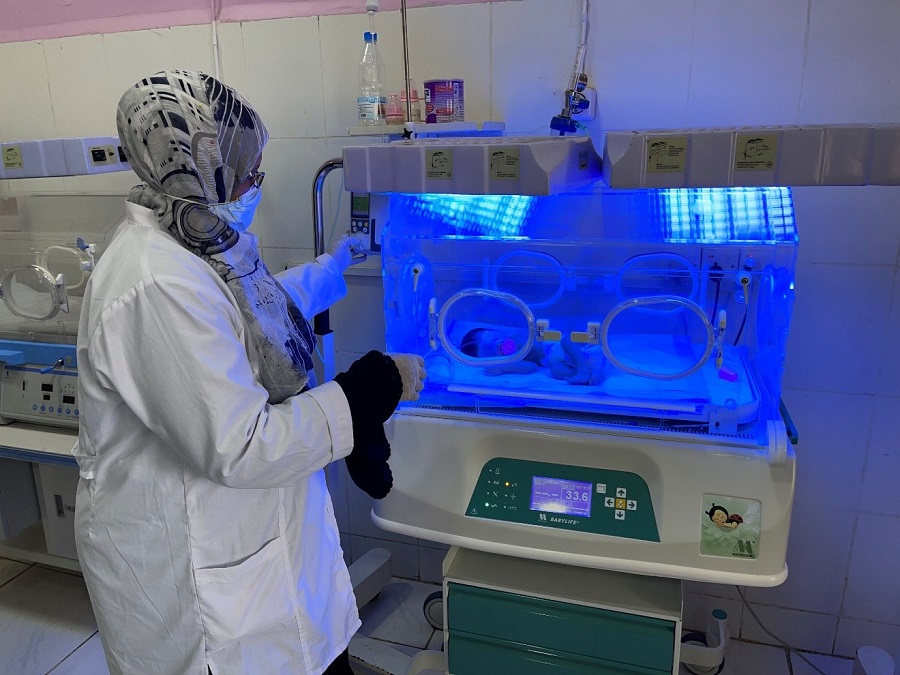
29 September 2021 – “Imagine a mother handing over her own child to you and saying, “This is my child, she is sick, please take care of her”, said Najat Saleh, a neonatal health specialist at the Al Sadakah hospital in Aden governorate.
Najat began working at Al Sadakah hospital in 1986, joining its neonatal care department in early 2021. “As a mother, moving into this department I feel like I’m with my own children,” she said. “I try my best to care for them and to be worthy of the trust that their mothers place in me.”
To improve the quality of care for babies born premature or sick, the WHO country office in Yemen, in partnership with the King Salman Humanitarian Aid and Relief Centre, has trained 94 neonatal care nurses and midwives from 19 district hospitals. The training focused on essential and life-saving care for newborns, especially in the most critical first hours after birth.
“We must provide intensive and urgent medical care to newborns with very weak immunity,” said Najat, one of the 94 health workers receiving this training, “This can start from the very first minutes after birth.”
“I learned how to monitor the babies’ vital signs and how to save their lives,” Dr Najat explained. “If their condition requires, we refer them directly to the incubators where they are given medications and oxygen until they stabilize.”
This training was the first of its kind in Yemen, and is aligned with the UN Sustainable Development Goal (SDG) 3.2 target of ending preventable deaths of newborns and children under 5 years of age to at least as low as 12 per 1000 live births. Currently in Yemen, most recent data are from 2013, when 26 deaths per 1000 live births and conditions were reported.
“I am now much more aware of the reasons why and how newborn children become sick, and the medications that must be given correctly, according to their weight,” said Dr Najat.
 “I am now much more aware of the reasons for why and how newborn children become sick, and the medications that must be given correctly, according to their weight,” Dr Najat.
“I am now much more aware of the reasons for why and how newborn children become sick, and the medications that must be given correctly, according to their weight,” Dr Najat.
Al Sadakah hospital receives infants from Taiz, Al Dhalea and Hudyadah. Most critical cases are often received from rural villages and may require up to a month of continuous treatment and care until recovery.
“This training is critical for us,” said Dr Mohammed Salim, a physician from Shabwah governorate. “I want to transfer the knowledge that I have gained to health workers especially in rural areas to save babies’ lives, including with cardiopulmonary resuscitation if critically needed.”
 “I want to transfer the knowledge that I have gained to health workers especially in rural areas to save babies’ lives, including with cardiopulmonary resuscitation if critically needed.” Dr Mohammed Salim.
“I want to transfer the knowledge that I have gained to health workers especially in rural areas to save babies’ lives, including with cardiopulmonary resuscitation if critically needed.” Dr Mohammed Salim.
This training is part of the Essential Health Services project funded by the King Salman Humanitarian Aid and Relief Centre. The project aims to provide quality and efficient health care services at 19 health facilities across Yemen.
“I’m thankful for this opportunity,” concluded Dr Mohammed. “Now I can better care for babies to save more of their lives.”




